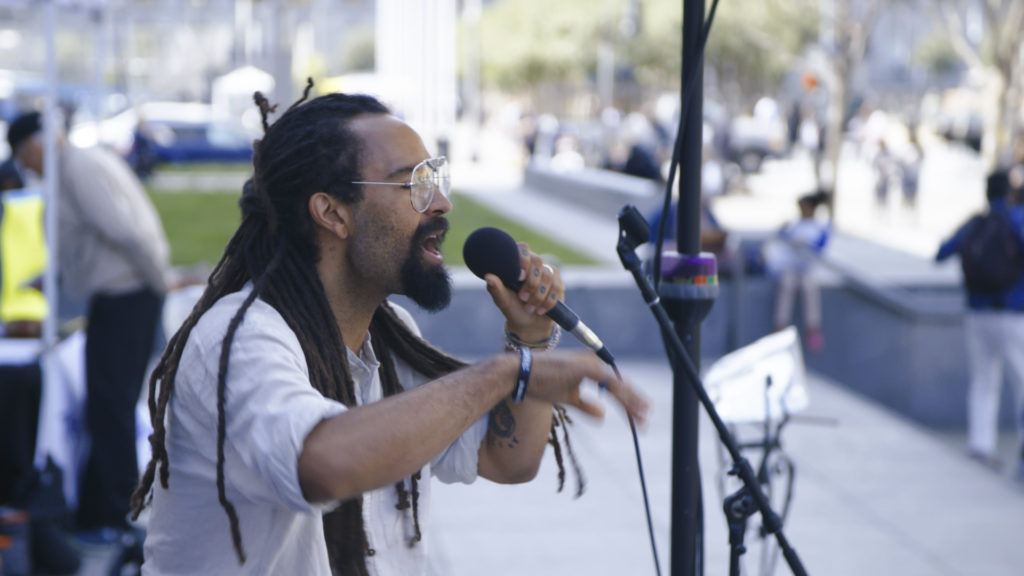What do you want the future to sound like?
https://youtu.be/oqWPOU3TnDg
We invite artists from around the world to join us and respond to the question: “What do you want the future to sound like?”
The ClimateMusic Project is delighted to feature responses from the creative community in our virtual series, “Play for the Planet”, which is a diversion from our core science-guided music during this time of Covid. We also invite artists to call out their favorite environmental nonprofits or highlight our own amazing partners in order to motivate action and engagement. At a time when the future of our climate seems dire, the need for hope and action has never been more important.
Interested in joining us and being featured on our website and social media? Send us a message at inquiries@climatemusic.org
Facebook
Twitter
Youtube
Instagram
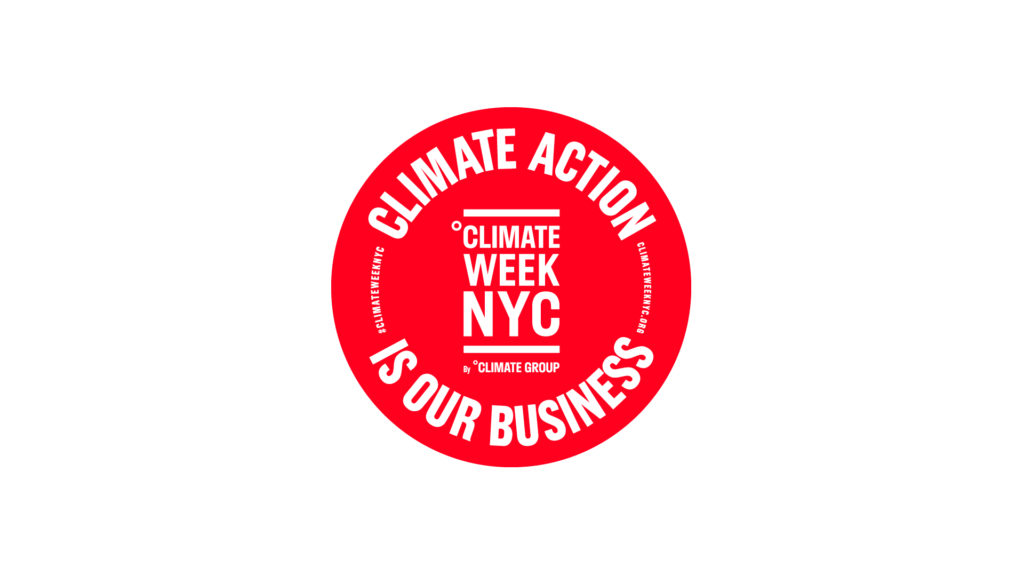
The ClimateMusic Project is proud to be an official event of Climate Week NYC. During the week of September 21-27, we will be posting videos and testimonials of artists who are using their platforms to communicate about climate change.
Scroll down to view an array of stunning performances by artists who have created an art-based response to the climate crisis, and are using their platforms to drive action on climate change!
Rocky is a Grammy nominated-Afro Roots artist and activist who uses his music to unite generations and cultures. He has been awarded as an UN Goodwill Ambassador for Africa for UN Environment and is a Global Ambassador for the UN Foundation’s Clean Cooking Alliance alongside actress Julia Roberts and Chef Jose Andres.
“The purpose of my work and music is to be able to leverage my platform and voice to incite transformative change.” Dawuni says.
In 2013, Rocky performed live in front of former UN General Secretary, Ban Ki Moon at the United Nations Framework Convention on Climate Change (COP) in Warsaw, Poland. He has performed at many important environment, humanitarian and social events including the United Nations Foundation “Social Good Hub” at South by Southwest Interactive Conference (SXSW) in Austin Texas.”
“My work aims to amplify a positive mindset that is key to promoting love for oneself and others while creating connections / bridges across race and culture.” Learn more about Rocky here.
Why communicate about climate change through music?
“Music is the language of nature. Music can elevate us and appeal to our best nature taking us to a place of harmony and agreement. When you combine the power of words, melody and sound to express an idea it articulates our deepest emotions beyond language,” says Dawuni. “This power can be a key component to inspire and activate our collective purpose towards a unified purpose and spurring action to an existential issue like climate change.”
Rocky supports the work of Fridays for Future a global climate strike movement that started in August 2018, when 15-year-old Greta Thunberg began a school strike for climate. Join Rocky in taking action here!
ATLYS is a classically trained, crossover string quartet, who have been performing for the past four years. Unlike other classically trained groups, who play the same revolving canon of music, ATLYS plays a repertoire of music that directly “reflects the current world we live in in all its diversity and beauty.” They believe music can express more than words, and that it has the ability to “reflect the outer world and simultaneously reveal our innermost truths.” Learn more about ATLYS here.
Why communicate about climate change through music?
Music, to ATLYS, is a “secret weapon” that can communicate the “terrifying reality of climate change.” They have chosen the composition of LA musician Noor Che’ree to communicate a hopeful future.
ATLYS supports the work of Eden Reforestation Projects, a nonprofit organization that works in developing countries to rebuild natural landscapes destroyed by deforestation. Support their work here.
Nick Platoff was appointed to the position of Associate Principal Trombone of the San Francisco Symphony by Michael Tilson Thomas in 2016, at the age of twenty-three. He enjoys a multi-faceted career as a composer/arranger/producer, soloist, vocalist, improviser, recording artist, educator, conductor, chamber musician, and concert producer.
“My mission as an artist is to create this compounding benefit. I aim to create music that empowers listeners to stand tall, feel gratitude, give generously, and love deeply,” says Platoff. Learn more about Nick and his work here.
Why communicate about climate change through music?
“Music creators have tremendous power to affect people, and therefore are responsible for deciding the impact they want,” says Platoff. “With our planet in crisis, we can all see that it’s time to use our magic toward creating a world habitable for all. God knows music can make you move, make you cry— let’s make music that moves you to action.”
Nick supports the work of the Rainforest Trust, a non-profit environmental organization that takes the direct approach of purchasing and protecting threatened tropical habitats and is proud to have purchased and protected over 20 million acres of rainforest in our 30-year history. Join Nick in supporting their work here.
For as long as he can remember, Fabian Almazan, pianist, composer, and founder and director of Biophilia Records, has felt a “nagging sort of angst” towards our world. Music, he has decided is the best medicine to soothe this angst. “It helps me heal when I am hurt and it lifts me up when I celebrate,” he says. “It makes me human.” Learn more about Fabian Almazan and his music here.
Why communicate about climate change through music?
“The world is in need of an emotional outlet like music to lift and mobilize the people into action more than ever,” Almazan says. That’s why his music and label, Biophilia Records, provokes the change, necessary to confront the “looming, existential reality that is climate change.”
Fabian supports the work of the Natural Resource Defense Council (NRDC), a non-profit organization that protects solid science, our environment, climate, and public health. Support NRDC’s work here.
Heitor Pereira is a film music composer who believes “music is a language that reaches straight to the soul.” Pereira has recently been working on animated films, “through which very young audiences are introduced to the sound of orchestra, world music, sound design, and pop elements.” His most recent work includes Angry Birds 2, Smallfoot, Playmobil, and the upcoming film Minions 2. Read more about Pereira here.
Why communicate about climate change through music?
Heitor Pereira watched a TED talk by Bernie Krause and felt the extreme need to act. “Nature is the biggest music conservatory on the planet!” says Pereira. However, “If you compare this dwindling habitat to a full symphony, and you try to listen to that music now, you would find that you are left with not much music,” he says. Pereira has taken up the responsibility to “guarantee that this majestic symphony doesn’t have a last note into silence.”
Heitor Pereira supports the non-profit Natural Resources Defense Council (NRDC) with whom he created the Sonic Sea documentary. The NRDC works to ensure that all people have the right to a clean and safe environment. Learn more about the NRDC here and the Sonic Sea documentary here.
Through projects like Emotion for Change, Sara Michieletto, a violinist based in Venice, Italy, builds empathy towards the creatures of the Earth, and tries to foster new praxis for daily life. In her performances, Michieletto looks to music as “the universal feel-maker, to conjure up an emotional and effective response to climate change.”
In this video, Michieletto is joined by artist Giorgio Schiavon on the saxaphone. Together they perform, “Albinoni, Allegro assai, Sonata XII”, revised for violin, saxophone and plants.
Why communicate about climate change through music?
“Music takes me to an expanded consciousness, a different awareness, similarly to what I feel when I am in beautiful natural landscapes,” says Michieletto. “To share these “exctasis” means to build a greater awareness of being part of a wonderful world.”
Sara Michieletto supports the work of nonprofit organization, Extinction Rebellion, a decentralised, international and politically non-partisan movement using non-violent direct action and civil disobedience to persuade governments to act justly on the Climate and Ecological Emergency. Check out there work here.
AY Young is a newly named United Nations Young Leader for Sustainable Development Goals and is on Fresh Energy’s 2020 Energy News Network’s “40 Under 40” list. He is the founder of “Battery Tour”, an organization which helps power concerts using 100% renewable energy.
AY Young launched Battery Tour to “raise awareness for sustainability, to prove what is possible through using music as a vehicle, and above all else, it was my attempt at one action every day.” Through the 800+ shows AY Young has performed (solely powered by renewable energy), he has determined that energy storage is key and realized that he has found his “way to make an impact to end the climate crisis.” Learn more about Battery Tour here.
Why communicate about climate change through music?
“Music can incite crowds, inspire ideas, move nations, energize your soul, and activate your mind,” says AY Young. “Music can change everything.” AY Young uses music to connect people to join forces and combat climate change together. “I realize that I can’t fix this issue alone. I realize we have to all do our part daily in order to combat this crisis,” he adds.
As founder, AY Young continues to support his organization Battery Tour which powers concerts using only renewable energy. Learn more about Battery Tour and get “plugged in” here.
Jason Davis is a composer, bassist, and director of Climate Stories Project, an educational and artistic forum where individuals share personal stories about climate change. Since 2013, Davis has recorded people’s stories about extreme weather, related emotions such as grief, and their commitment to moving forward through the crisis. He uses these voice recordings to “create music, composing melodic material inspired by the cadence, melodies, and imagery expressed in participants’ voices.” Learn more about Davis’ work here.
Why communicate about climate change through music?
Jason Davis records people’s stories involving climate change and uses “the recorded voice samples to create music, composing melodic material inspired by the cadence, melodies, and imagery expressed in participants’ voices.”
The piece shared here, “Footsteps in Snow”, is built around the words of Inuit elder John Sinnok of Shishmaref Alaska, who observes the changing environment in his coastal Alaskan village, including how the sound of people walking through snow has changed as the climate has warmed. “It is my hope that “climate narrative” pieces like “Footsteps in Snow” encourage listeners to empathize with those on the front lines of climate change and to share their own climate stories,” says Davis.
Since 2013, Jason Davis has directed the Climate Stories Project. His goal is to represent individual experiences with climate change through music. Learn more about the Climate Stories Project here.
Laura Brehm is deeply moved by the issues we are facing in the world today, and she seeks to translate this into her own music both individually and collectively. “My aim has always been to inspire people and now more than ever,” she says. “I want to direct this to help specific causes as well as promote the wellbeing of people and the planet.” Learn more about Brehm here.
Why communicate about climate change through music?
“Music means everything to me, it’s my purpose and my passion,” says Brehm. “It’s important to find creative ways to communicate the issues about climate change because this is a way we can really impact people on an emotional and personal level.”
Laura supports and is involved in the environmental groups, One Tree Planet and Trees for the Future. Join Laura and support their work in planting trees for a healthier planet and reviving degraded lands.
Since her childhood, Scarlet Rivera’s duel passions have been music and wildlife. In addition to her 1975 tour with Bob Dylan, she has performed as a soloist with the Duke Ellington Orchestra at Carnegie Hall, the Kennedy Center, and the Carnival of Venice, Italy. Today, she continues to be an active recording artist, performer, composer and activist, using her music to help protect wildlife, the environment and animal rights. Learn more about Rivera here.
Why communicate about climate change through music?
“Music is the audio thread that connects us all. It can inspire humanity to choose to take action for the greater Good of the planet…and all life on it,” says Rivera.
This piece is called “The Eagle” and is from her album “Voice of the Animals”, which is a “look into the eyes of a wild creature and feel the spark of primal love reawakening.”
Support the ClimateMusic Project’s work in combining science and music to drive climate action! We thank you for your participation and support! Donate here.
Eduardo Del Signore heard a call to music at a young age, “from the echoes of the Afro-Uruguayan rhythms of Candombe being played in the streets” of his Montevideo neighborhood in Uruguay. These memories are still incorporated into his music today. “My work in the avenue of music and life is focused on the beauty of human expression,” he says. Learn more about Eduardo here.
Why communicate about climate change through music?
“Climate change from my perspective is created by human beings ignorant of that beautiful reality,” Del Signore says. “Music and creative endeavors in general, are avenues that can and should be utilized to bring the awareness of what is happening right now with the effects of climate change in our time, in our lives.”
Eduardo supports the organization A Call 2Peace Foundation, which at the moment is organizing an initiative to help with the work of a music and arts school in Lebanon called “Philokalia”.
Anyone interested in more details can write to them at ac2pfoundation@gmail.com.
COPUS is a theatrical spoken word jazz ensemble who weaves together dynamic poetics with lush musical landscapes across multiple genres. COPUS is an acronym for Creation Of Peace Under Stars. Formed by renowned San Francisco poet Royal Kent and ASCAP award-winning composer Wendy Loomis, the group has performed and presented their wonder works at clubs, theaters, festivals, fundraisers, house concerts and special events throughout the United States with a focus on worldwide. Read more about COPUS here.
Why communicate about climate change through music?
“Music has the power to reach humans on a subconscious, primordial level,” says COPUS. “From the earliest instruments of drums created with stretched animal skins to the most sophisticated technological sounds of today, music has always been essential to humans to express the unexpressed, to reach beyond the mind to the spirit, to communicate and connect, and to ease the burdens of daily concerns. ”
COPUS supports the organization, Forest Trends, which promotes healthy forests, sustainable agriculture, clean water, robust climate action, protected biodiversity, and strong communities. Learn how you can support them here.
Chroma Sea is a music and video production duo that creates peaceful and ambient pieces that pair with the natural scenery and seascapes of California. The result is a meditative audio/visual journey that is meant to disengage viewers from media consumption and inspire exploration of the world around them.
In the San Francisco community, they work with organizations like Gray Area for whom they’ve been producing video content in association with their 2020 exhibition The End of You, an immersive experience dealing with humanity’s relationship with the environment that’s meant to shift the audience into a more global perspective. Learn more about Chroma Sea here.
Why communicate about climate change through music?
“Music pushes us to explore and improve ourselves,” says Chroma Sea. “By bringing art into the world, we’re trying to cultivate growth in our surroundings in the hope that it inspires audiences to do the same. Visually, we’d like to plant the seed of respect for the natural world and in doing so help protect the planet.”
Chroma Sea supports the work of The Ocean Agency, a non-profit organization that uses the combination of creativity, technology and powerful partnerships to raise the awareness and support necessary to help fast-track ocean conservation action. Learn more about The Ocean Agency here.
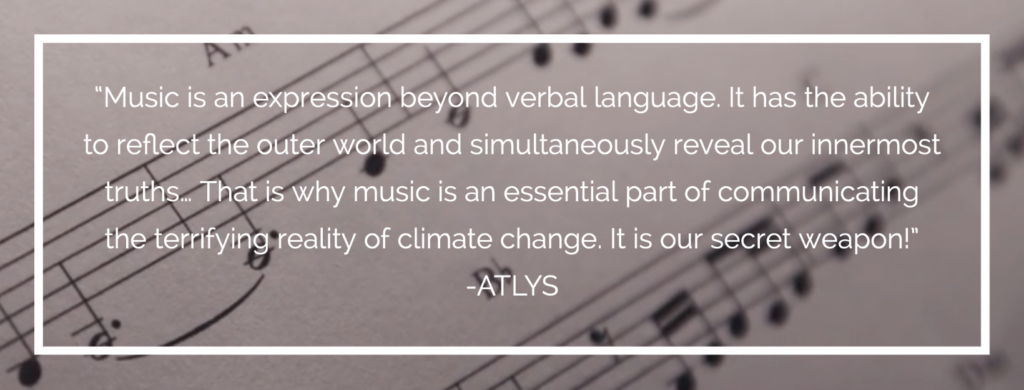
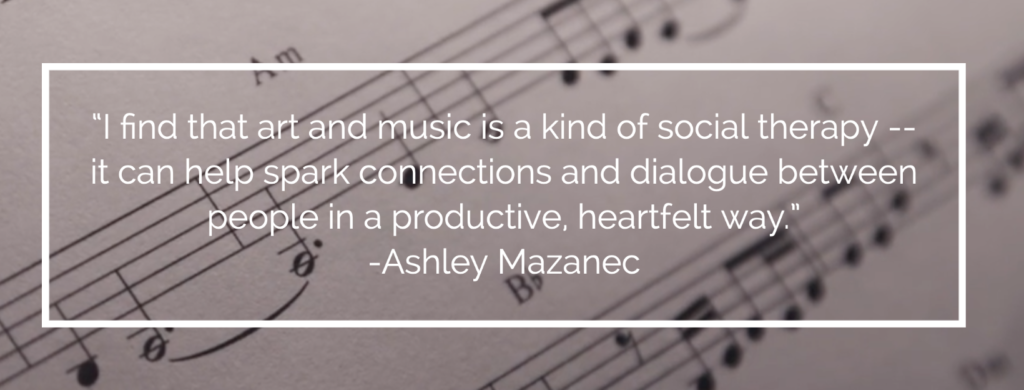
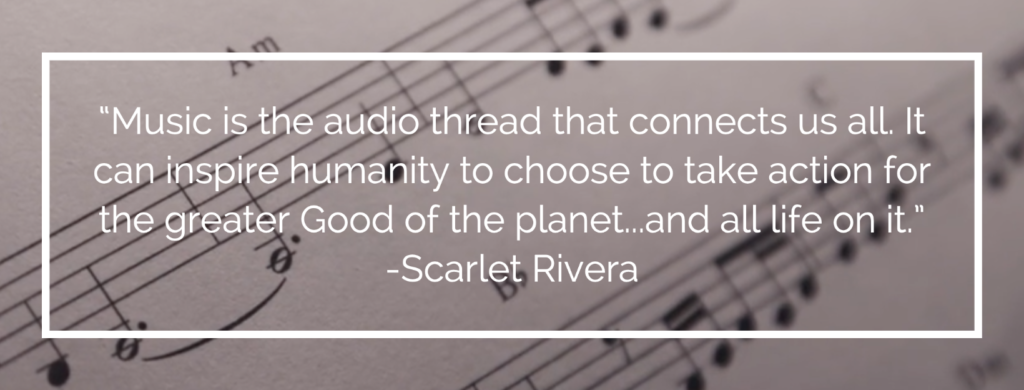
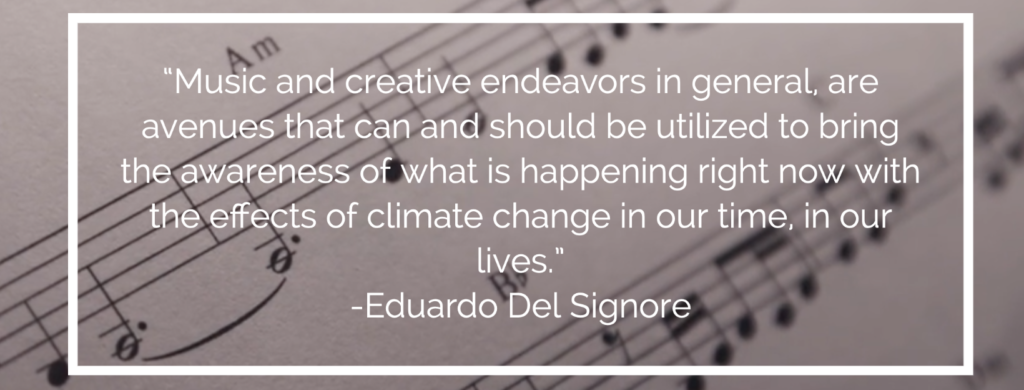
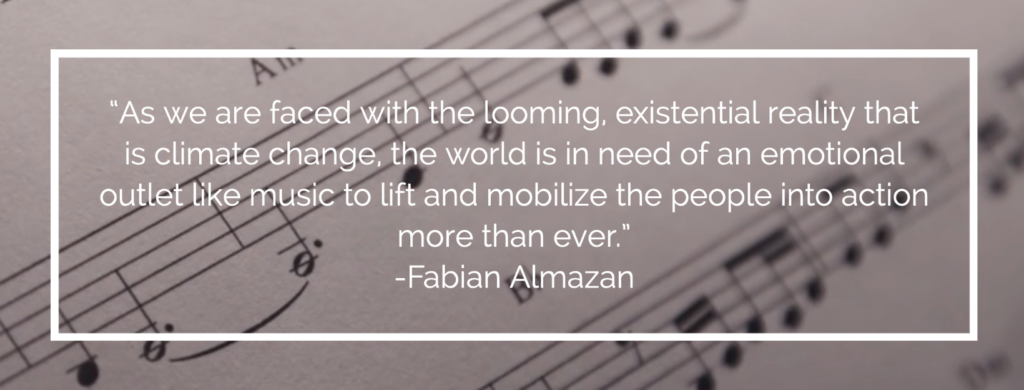
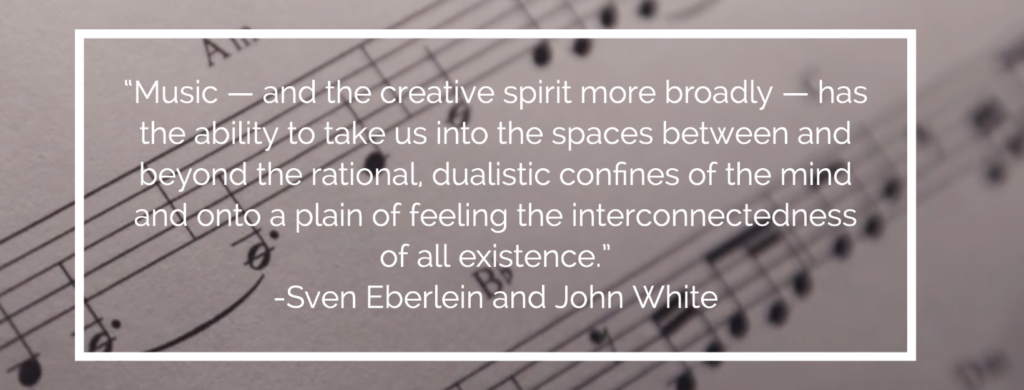
Previous
Next
About Sven Eberlein and John White
Sven Eberlein and John White joined forces after meeting through their bands Chemystry Set and Beet The System over 20 years ago. Together, the pair has written six compositionally and lyrically diverse albums that have “inspired live audiences across the world to shake their hips and think deeply, sometimes all at once.”
Why communicate about climate change through music?
To Eberlein and White, music has always allowed deep exploration of the inner workings of humanity, community, and ecology. The duo believes that when music is “communicated from a place of knowledge and care it has the power to weave the abstract and often detached science of climate change into the infinitely intricate fabric of our physical existence as well as consciousness itself.”
Their latest collaboration “The End is the Beginning”, “was recorded against the backdrop of California’s record heat wave and mega wildfire smoke layered onto Covid-19, infusing the gravity and urgency of the global climate crisis into our sound.”
Sven Eberlein and John White support the non-profit Sunrise Movement. Sunrise Movement aims to make climate change a priority across America and bring climate change to the political sphere. Learn how to take action with Sunrise Movement here.
For Ashley Mazanec, music is a source of joy. Mazanec has found that, “art and music is a kind of social therapy as well — it can help spark connections and dialogue between people in a productive, heartfelt way.” Her music has been featured on LA Talk Radio and also on corporate playlists. She is also the founding director of EcoArts Foundation, which is committed to inspiring ecological regeneration via the arts.
Why communicate about climate change through music?
Ashley Mazanec discovered that writing music on climate change has helped her integrate what she knows with what she feels. Mazanec’s first album, “Let’s Talk About the Weather“, was written with the intention of starting conversations about climate change and major shared challenges. “It has helped me to reflect on and even laugh about my own feelings and thoughts about various ecological crises, and connected me to others that are exploring their own emotions on this topic,” says Mazanec.
Support the work of The ClimateMusic Project’s amazing partners here.
For over 20 years, National Public Radio and Parenting Magazine acclaimed duo, ScribbleMonster, has used music and creative play to engage the next generation. ScribbleMonster has shared music with every Chicago neighborhood (through the Chicago Public Library), earned a regular role on Sirius/XM’s Kids Place Live, and appeared at Lollapalooza. The pair both inspires and is inspired by their young audiences. Learn more about ScribbleMonster here.
Why communicate about climate change through music?
ScribbleMonster uses music to encourage the youth to initiate creative expression and thought. “We strive to build confidence, skill, and help inspire the curiosity and imagination of the next generation’s creators and innovators,” ScribbleMonster says.
ScribbleMonster supports the Story of Stuff, a non-profit that creates documentaries to highlight our consumption-crazed culture. Watch their documentaries and learn more about the Story of Stuff here.
Sophia Fletcher is a soulful musician whose music is inspired by nature through thought-provoking lyrics that reflect her compassion and justice for animals, humanity and environment. Based in Australia, she hopes to create and promote “a positive and meaningful contribution to the local and wider global community.” Read more about Sophia Fletcher here.
Why communicate about climate change through music?
“Music can help to promote and protect, as well as support the ongoing climate change movement,” says Fletcher. “Together, with integrity, compassion and insight, we can find creative ways to communicate the issues surrounding climate change, and be part of the chorus of voices that will issue and inspire bold environmental advocacy, mobilizing our friends, family, neighbors, local communities and humanity with an urgent call for action to change the world.”
Sophia supports the work of the charity organization, Friends of the Koala Inc., which is committed to conserving koalas and preserving and enhancing their habitat, particularly in the Northern Rivers region of New South Wales. Support them here.
Simon Kerr is the musical producer at Music for a Warming World, an organization combining original music and visuals to take audiences on journeys that walk them through the challenges of climate disruption and how to prepare. For Kerr, “music provides the emotional space to process the unthinkable; that our world as we know it is disappearing and being replaced by a far tougher future.” Learn more about Simon Kerr and Music for a Warming World here.
Why communicate about climate change through music?
Simon Kerr agrees with Australian musicologist and author David Harvey who, in his book Music, Evolution, and the Harmony of Souls, stated that music is, “the most important thing our species ever did.” Kerr believes that, “Music can help us bear witness to what is happening to communities, to oceans and atmosphere and forests.” It provides the emotional reinforcement needed to address these issues. Music for a Warming World is working on a new project, Stories for the Future, to tell the story of the food system, ecological restoration, renewable energy in Australia and more. Look out for more information about this new project here.
Simon Kerr continues to support the organization Music for a Warming World through his musical contributions. The Music for a Warming World tells stories of how climate change has disrupted the planet and how to prepare for the future through diverse music and large, captivating visuals. Learn more about the work of Music for a Warming World here.
Stephanie Siehr currently works alongside members Liz Stuart, Tyler Cook, and more in The Stratospheres, a mysterious rock ‘n’ roll and proto-punk band. The Stratospheres have written about a unique range of topics including heat waves and performed at venues such as film festivals and historic hotels. To learn more about The Stratospheres check out their Youtube channel and Facebook “The Stratospheres” and contact them at TheStratospheres2020@gmail.com.
Why communicate about climate change through music?
“For people already tuned in to climate disruption, I hope the music brings the energy needed for action. And for those unawares or mired in misinformation, I hope the music sneaks through on the back beat and brings understanding, brings us together,” Siehr says. This piece is an excerpt from The Stratosphere’s song “Horsemen of Apocalypse/Steeds of Light.” They are currently recording their first EP.
Stephanie Siehr supports the Indigenous Environmental Network (IEN) and the Sunrise Movement. Learn more about the IEN’s goals to empower Indigenous Peoples to pursue environmental protection and the Sunrise Movement’s work to make climate change a political priority.
Nikita Faie is an English singer-songwriter studying opera under scholarship at Trinity Laban Conservatoire in London, UK. She has specialized in film composition, toured with The Overnight Angels, and creates solo alternative/indie pop music which sometimes features her opera singing. Faie uses her music to advocate for social issues such as climate change. “We must change for a better world. We must change for the future,” she says.
Faie is currently collecting donations through digital sales of her single H U M A N Z O O. Learn more about her single and donate here. Donations go to Plastic Oceans UK, an NGO that raises awareness of plastic pollution on oceans.
Why communicate about climate change through music?
“Creativity can spark conversation,” says Nikita Faie. Through her music, Faie hopes to communicate the issue of climate change and inspire everyday action. “It’s time to truly realise that only we can step up to fix the problem,” says Faie. “Take care of our home, before the struggle is out of the hands of the future generation,” she advocates. Faie believes it is time to #facetheclimatemergency.
Nikita Faie supports Plastic Oceans UK, an NGO that raises awareness of plastic pollution’s negative effect on our oceans. Faie is currently collecting donations through digital sales of her track H U M A N Z O O. Purchase her single and donate here. Learn more about Plastic Oceans UK here.
Silvia Koscak Harkenrider is an Illinois, USA based Adjunct Professor, Climate Reality Leader, and an active volunteer at the Sierra Club. During stay-at-home orders, Harkenrider started a podcast to spread her environmental messages of hope and create a forum for people to share their experiences. She further extended her positivity to create her new piece, shown above, ‘Ecoditty’. In collaboration with her husband, she channeled her background in Croatian folk music and newly learned ukulele skills to demonstrate that, with the help of ecowarriors, “the future will sound like a healthy symphony of biodiversity”. Listen to Silvia Harkenrider’s podcast here.
Why communicate about climate change through music?
After growing up playing Croatian folk music in America, Silvia Harkenrider learned that, “music is a great way to reach people who may or may not speak your own language.” Harkenrider stated that, “With the help of ecowarriors, I believe that the future will sound like a healthy symphony of biodiversity.” Her piece, ‘Ecoditty’, spreads this hopeful message. Through her musical and environmental work, Harkenrider hopes to highlight and directly address environmental issues because as she believes, “earth needs a good lawyer”.
Alongside being an Adjunct Professor, a Climate Reality Leader, and an active volunteer at the Sierra Club, Silvia Harkenrider supports Earthjustice. Earthjustice is a nonprofit environmental law organization that “goes to court for the future of our planet.” Learn more about Earthjustice here.
The SUN SiNG Collective is composed of 8 professional musician activists who use their diverse music/cultural backgrounds to support environmental justice grassroots organizations in Virginia, Appalachia and beyond.
The band has successfully supported Al Gore and Reverend William Barber II in opposing the proposed fracked gas compressor station in Buckingham, VA, helped initiate abandonment of the Atlantic Coast Pipeline ($8 billion gas pipeline) during the summer of 2020, and continues to share their activists efforts to thousands of people worldwide through online programs. Watch their latest program here.
Why communicate about climate change through music?
Music is, “able to evoke emotional awareness. Using this as a vehicle to share messages of compassion and empathy to the plights of injustice is a very effective way to convey the deep and complicated narratives that so frequently accompany injustice,” says Graham Smith-White of The SUN SiNG Collective. The band further believes that music is an organizational tool that can gather folks to share essential messages about climate change and prevent fallout.
The SUN SiNG Collective supports the organization ARTivism Virginia which works to connect artists and activists in Virginia to fight for environmental justics and is home to The SUN SiNG Collective. Learn more about ARTivism Virginia here #noMVP #noACP.
https://youtu.be/60rLvaRl4Fo
About Elizabeth LoGiudice
Elizabeth LoGiudice is a life-long musician, multi-instrumentalist, environmental educator, and radio producer. Her goal to use music to illuminate environmental issues and initiate action has led her to become producer of the Echolocation podcast and bassist (aka River Faerie) for the band Dust Bowl Faeries.
Why communicate about climate change through music?
To Elizabeth LoGiudice, music connects humanity and transcends words to convey deep meaning. “Music catches our attention, helps us remember, and is an inspirational mode of expression,” says LoGiudice. She believes that music is the key to communicating about climate change, “It is such an overwhelming topic, that conceiving of it strictly on an intellectual level is insufficient. Using creative approaches that acknowledge the emotional aspect of responding to climate disruption and mass extinction is essential to shifting from information overload to dedicated and determined action.” Through her composition, LoGiudice acknowledges the current perils we face, but also highlights the hope of restoring our relationship with Mother Nature.
Elizabeth LoGiudice supports the Women’s Earth & Climate Action Network (WECAN) International, an organization that aims to mobilize women to build global climate justice through policy advocacy, projects, training and more. Learn more about WECAN here.
Iron Sage Wood is a five man band that produces acoustic soul music. The band releases music with the intention of uplifting and inspiring the community. “We believe our work is the vessel for messages of peace, hope and awareness,” says Iron Sage Wood. The band believes that self actualization is key to environmental rejuvenation. Learn more about Iron Sage Wood here.
Why communicate about climate change through music?
To Iron Sage Wood, music is important, “because it gets right to the heart.” Iron Sage Wood feels that, “with an open heart we can open others hearts as well. In these times of great adjustment and change it’s more important than ever to connect and communicate from the heart.” This heart to heart communication allows the band to speak about complicated and controversial subjects that affect the entire population and assure every community member that, “we are all in this together!” Learn more about Iron Sage Wood here.
Iron Sage Wood supports the environmental non-profits Surfrider Foundation and Rob Machado Foundation. The Surfrider Foundation collaborates with their dedicated team of science, environmental, and legal experts to create solutions that protect coastlines. Learn more about the Surfrider Foundation and volunteering here. The Rob Machado Foundation works to educate and empower young students to make sustainable choices. They also install water filling stations in schools and public places to increase access to clean, filtered water. Learn more about the Rob Machado Foundation here.
Join Us!
Interested in joining us and being featured on our social media and website? Send us a message at inquiries@climatemusic.org! Or make your own video, post it, and use the hastags: #PlayforthePlanet and #ClimateMusic, #ClimateWeekNYC, and tag us @ClimateMusic
Be sure to follow our social media as we continue to frequently post new videos of artists playing for the planet!
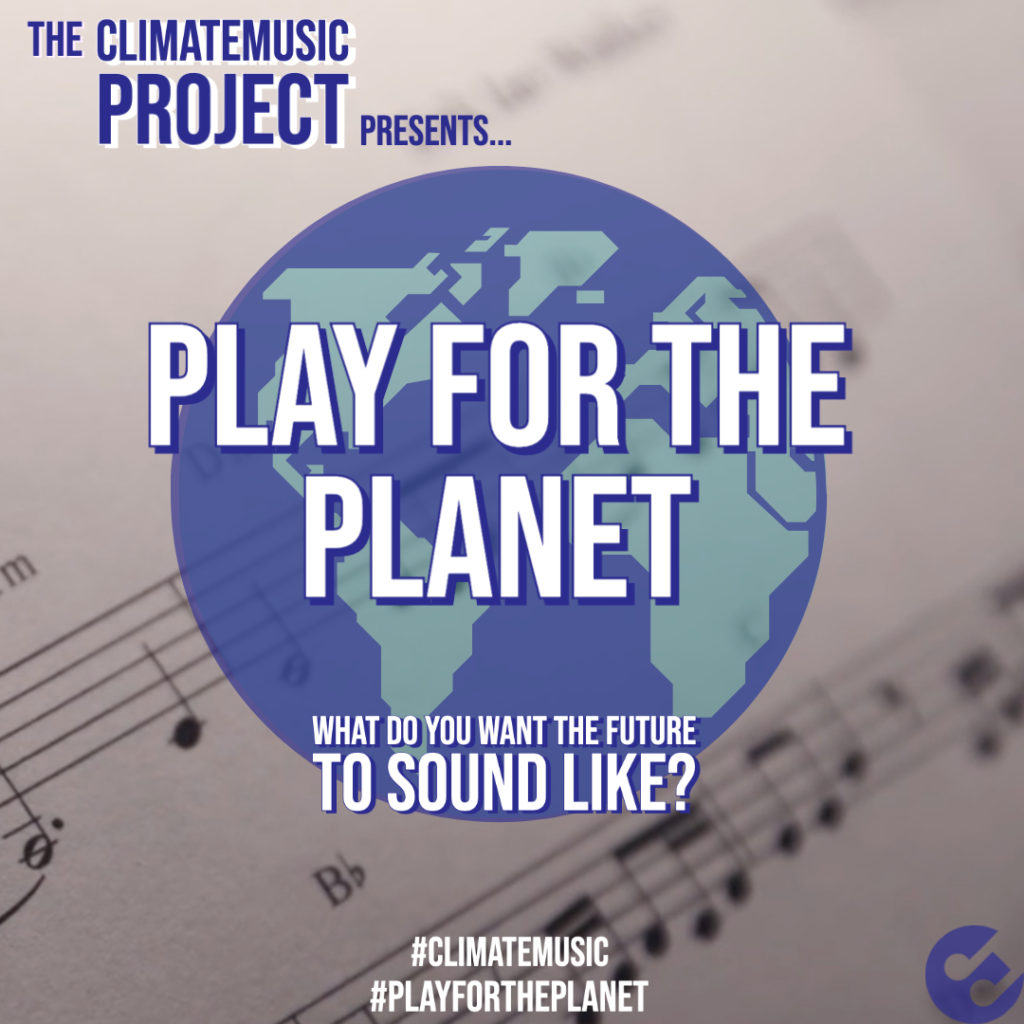
About Play for the Planet 2018
In Spring of 2018, we put on a live Play for the Planet as an official affiliate event of the Global Climate Action Summit. We set up on the steps of San Francisco’s main public library, and invited artists to perform their own music and art based on the question: What Do You Want the Future to Sound Like?
The result? — a full day of stunning performances by singers, musicians, poets, and beatboxers, some prepared and some impromptu passer-bys, who came together to create an art-based response to the climate crisis, playing for a hopeful future. Watch videos from that day in May here.
